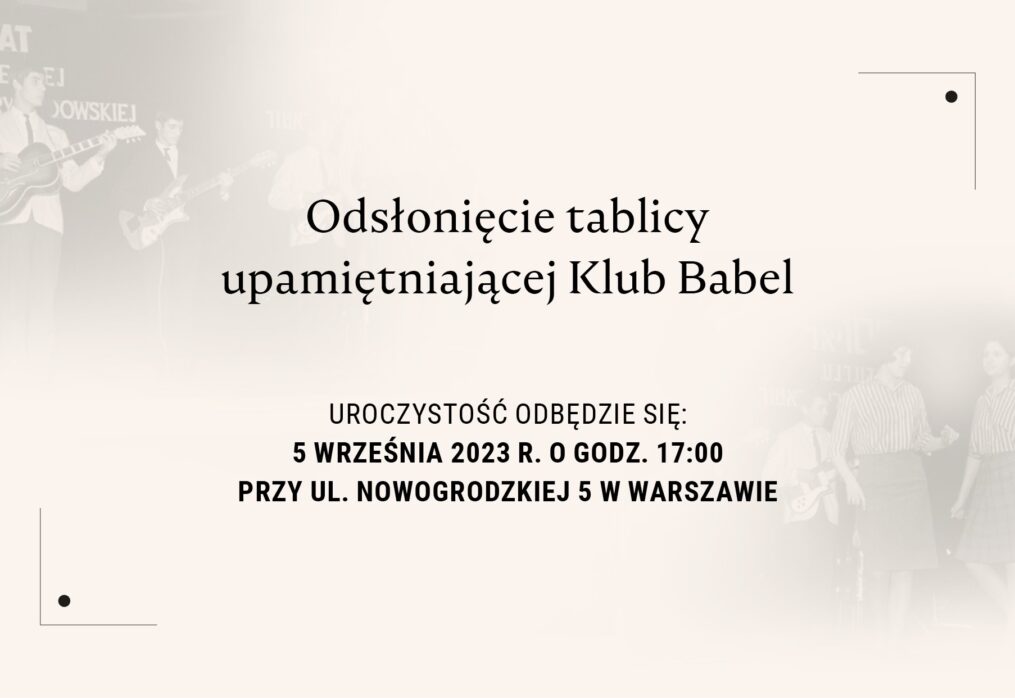The Social and Cultural Association of Jews in Poland will organise an event to commemorate the Jewish Babel Club, which used to be popular in the 1960s. On 5 September at 5:00 p.m. a ceremony of unveiling of a commemorative plaque will take place at ul. Nowogrodzka 5. The ceremony will be attended by former activists and regular guests of the Club, the majority of whom emigrated from Poland, as a result of the events of March 1968.
The Babel Club used to be one of many student clubs in Warsaw – and even though it was neither the biggest, nor most popular one, the circle of its enthusiasts used to expand gradually each year. The Big Beat music, interesting lectures, well-known names … attracted the students’ community as a magnet, even during exam sessions. On Wednesdays, the ‘commandos’ sowed havoc by ‘grilling’ the speakers with their inconvenient questions. On Saturdays, dancing kings and queens had fun at noisy dance parties. Bridge players played fierce rounds of game in a haze of cigarette smoke. Anyone who just popped for a second stayed until late night hours, because they enjoyed the Babel’s atmosphere. The club had its backlash and a distinct profile – a Jewish one.
The student club at the TSKŻ Headquarter started its operations at the beginning of 1966 and in May it assumed its current name i.e. the Babel Club. Among the activities hosted by the Club,
the most popular were dance parties, lectures and meetings with interesting people.
Among the Club’s guests, there were writers and poets, actors, scientists and journalists, such as the prominent athlete Irena Kirszenstein, the sports journalist Bohdan Tomaszewski and the actor Stanisław Tym. However, the most famous event in the history of the Babel Club was the meeting on 7 June 1967 with the editor-in-chief of the Polityka weekly, Mieczysław F. Rakowski.
Apart from dance parties, lectures and meetings with interesting people, the Club guests could attend Yiddish classes or listen to lectures on Jewish history. There was also a small theatre, a film section, a poetry section, a theatre friends’ club and a student cabaret.
The Babel Club was disbanded as a result of a government decision in April 1968.
The grounds for the decision stated that the club’s activity was incompatible with the law of on associations, as it “threatened public safety and order”.
When the Club was disbanded, the majority of its activists and supporters scattered around the world, but its legend continued to live on. In 2017, the iconic Club was revived by the Social and Cultural Association of Jews in Poland in a brand new location. From that time on, the new Babel Club has been operating in the very heart of Warsaw, at ul. Próżna 5.
On 5 September at 5:00 p.m. at ul. Nowogrodzka 5, Warsaw, TSKŻ is going to host an event to honour the memory of this unique venue, which played a very important part in lives
of post-war Jewish youths, especially those who were forced to leave Poland after 1968.

